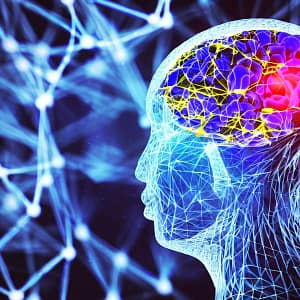Introduction
In today’s digital age, data is being generated at an unprecedented rate. Every day, we create billions of terabytes of data from our smartphones, laptops, social media activity, and other devices. This data is valuable, but it can also be overwhelming and difficult to manage.
That’s where big data comes in. Big data is a term for large and complex datasets that are difficult to process using traditional methods. By using big data analytics, businesses can make sense of this data and gain insights that would not be possible otherwise.
Use Cases
The phenomenon of big data is precipitating substantial transformations within various global industries. Illustratively, retailers are employing big data to meticulously monitor consumer conduct and customize recommendations. In the realm of healthcare, organizations are harnessing big data to enhance patient care and arrive at more judicious determinations regarding treatment strategies. Moreover, governmental bodies are capitalizing on big data to combat criminal activities and bolster public safety measures.
Although still in its nascent phases, big data carries the potential to engender a paradigm shift in our societal and occupational dynamics. As the voluminous reservoir of data perpetually expands, the significance of big data analytics is destined to escalate significantly, cutting across enterprises and entities of all dimensions.
What is Big Data?
The term “big data” pertains to expansive and intricate datasets that challenge conventional processing methods. Big data exhibits distinctive attributes encompassing volume, velocity, variety, veracity, and value.
- Volume denotes the expansive magnitude of big data datasets, which can extend to terabytes, petabytes, or even exabytes in scale.
- Velocity underscores the rapid pace at which big data is generated, necessitating real-time processing capabilities for businesses.
- Variety underscores the assortment of data types encompassed within big data datasets, encompassing structured, semi-structured, and unstructured data.
- Veracity pertains to the precision and reliability of big data, acknowledging that it can be prone to noise and inconsistencies, necessitating the identification and rectification of erroneous data.
- Value conveys the insights that can be gleaned from big data analysis. Through this analytical process, enterprises can enhance decision-making, augment customer service, and optimize profitability.
How is Big Data Used?
The application of big data has found its footing within a diverse array of industries, encompassing but not limited to:
- Retail: Retail establishments are harnessing the potential of big data to meticulously monitor customer behaviour and offer personalized recommendations. Notably, Amazon employs big data to propose products to customers based on their historical purchases and browsing patterns.
- Healthcare: Within the healthcare domain, organizations are employing big data to elevate patient care standards and facilitate informed decisions regarding treatment regimens. A case in point is the Mayo Clinic, employing big data to construct individualized treatment strategies for cancer patients.
- Government: Governments are capitalizing on big data to combat criminal activities and elevate public safety measures. For instance, law enforcement agencies employ big data to scrutinize crime patterns and pinpoint potential offenders.
- Finance: Financial institutions are leveraging big data for sound investment decision-making and risk mitigation. Notably, banks employ big data to dissect market trends and identify undervalued stocks.
- Manufacturing: Manufacturers are embracing big data to enhance production methodologies and curtail expenditure.
The Future of Big Data
Big data is still in its early stages, but it has the potential to revolutionize the way we live and work. As the amount of data continues to grow, big data analytics will become increasingly important for businesses and organizations of all sizes.

Here are some of the ways that big data is expected to change the world in the future:
Big data will be used to create smarter cities. Smart cities will use big data to improve traffic management, energy efficiency, and public safety.
Big data will be used to develop personalized medicine. Personalized medicine will use big data to tailor treatments to individual patients.
Big data will be used to create self-driving cars. Self-driving cars will use big data to navigate roads and avoid accidents.
Big data will be used to create virtual reality experiences. Virtual reality experiences will use big data to create realistic and immersive environments.
Big data will be used to create artificial intelligence. Artificial intelligence will use big data to learn and make decisions.
Conclusion
The potentials inherent in the realm of big data are boundless. As technological advancements persist in their progression, we can anticipate the emergence of even more inventive and revolutionary applications for big data in the years ahead.
Big data stands as a swiftly evolving domain, poised to reshape our lifestyles and professional landscapes. As the reservoir of data continues to burgeon, the significance of big data analytics will progressively magnify, transcending across businesses and organizations irrespective of their scale.
The horizon of big data is illuminated with promise, evoking a sense of enthusiasm as we contemplate the array of prospects it offers. The transformative influence of big data spans a spectrum of spheres, ranging from the enhancement of healthcare to the establishment of more intelligent urban landscapes. It falls upon us to wield big data conscientiously and ethically, harnessing its advantages while prudently mitigating its associated perils.



